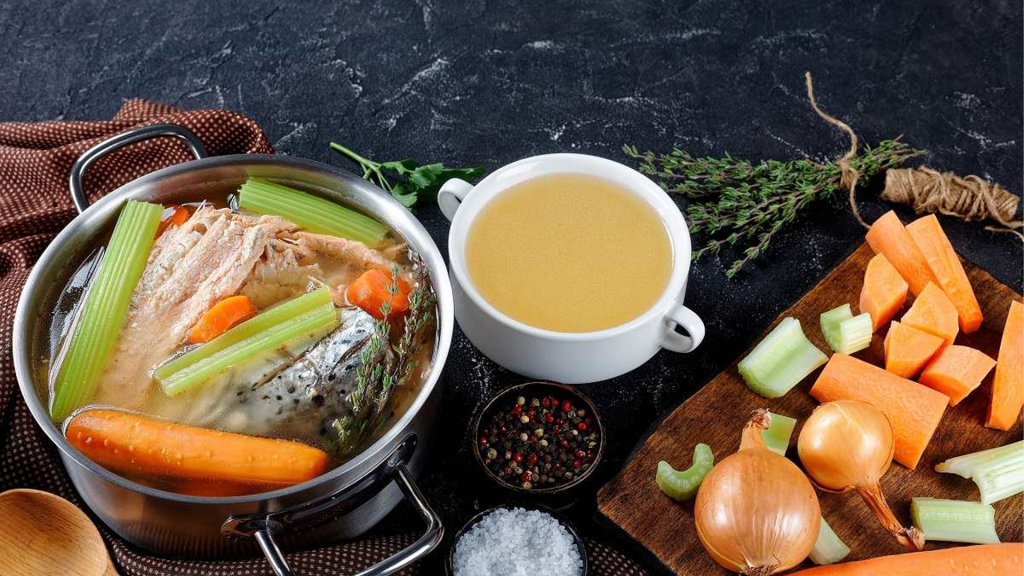Written by Natalia Laspina
Medically reviewed by Isabela Sorgio (Nutritionist, Mindful Eating Specialist)
The Role of Collagen in Your Health
Collagen is the most abundant protein in the human body, acting as a fundamental building block for skin, bones, muscles, tendons, and ligaments. Often referred to as the “glue” that holds the body together, collagen provides structure, strength, and elasticity to various tissues.
As we age, our natural collagen production declines, typically starting in our mid-20s and progressively decreasing each year. This reduction can lead to visible signs of aging, such as wrinkles and skin sagging, as well as joint stiffness and weakened muscles. External factors like excessive sun exposure, smoking, and a poor diet can accelerate this process, making it even more crucial to maintain adequate collagen levels through nutrition and lifestyle choices.
Medical research suggests that collagen supplementation and collagen-boosting foods can help improve skin elasticity, support joint health, and promote muscle recovery. By incorporating collagen-rich foods into your diet, you can support your body’s ability to maintain strong and resilient tissues, improving overall well-being.
The Benefits of Collagen for Your Health
Collagen plays a crucial role in maintaining the body’s structural integrity. Beyond its well-known benefits for the skin, this essential protein contributes to various aspects of health:
- Hair and Nails: Collagen provides the amino acids necessary for strong, healthy hair and nails. It supports hair follicles, preventing breakage and enhancing growth, while also reinforcing nail structure to reduce brittleness.
- Joint and Bone Health: Since collagen is a key component of cartilage, consuming collagen-rich foods may help reduce joint pain and stiffness associated with aging and conditions like osteoarthritis.
- Gut Health: Some research suggests that collagen supports gut lining integrity, which may help individuals with digestive disorders like leaky gut syndrome.
- Muscle Mass and Recovery: Collagen contains glycine and proline, amino acids essential for muscle repair and regeneration, making it beneficial for athletes and those recovering from injuries.
- Cardiovascular Support: Collagen provides structure to arteries and blood vessels, playing a role in maintaining heart health and circulation.
To maintain healthy collagen levels, it is essential to consume foods rich in collagen or those that aid in collagen synthesis, such as those high in vitamin C, zinc, and copper.
Collagen-Boosting Foods to Include in Your Diet
Incorporating collagen into your daily meals doesn’t have to be complicated. From smoothies to broths and even gelatin-based snacks, here are some easy and effective ways to ensure your body gets the collagen it needs.
Collagen-Boosting Smoothie

A delicious and refreshing way to support collagen production is through vitamin C-rich fruit smoothies. Vitamin C is essential for the body’s ability to synthesize collagen, making citrus fruits and berries great choices.
Ingredients:
- 1 cup strawberries
- 1 cup blueberries
- 1 cup raspberries
- 1/2 cup fresh orange juice
Preparation:
Blend all ingredients together until smooth. You can add ice for a more refreshing drink. The antioxidants from the berries help protect existing collagen, while the vitamin C aids in new collagen formation.
Bone Broth: A Traditional and Effective Source of Collagen

For a direct source of collagen, bone broth is one of the best options. Slow-cooked bones release collagen, gelatin, and essential minerals that support skin, joints, and overall health.
Ingredients:
- 2 lbs bones (chicken, beef, or mixed)
- 1-2 onions, chopped
- 1 stalk celery, chopped
- 1 carrot, chopped
- 2 tbsp apple cider vinegar
- 1 tsp turmeric (optional)
- 1 clove garlic (optional)
- 1 tbsp thyme or rosemary
- 1 inch piece of fresh ginger
- 1 bay leaf
- 8 cups water
Preparation:
Place all ingredients in a large pot. Simmer on low heat for 12 hours (or in a pressure cooker for 3 hours). Once cooled, strain and store in the refrigerator. Remove the top layer of fat before reheating.
Carrot Gelatin: A Nutritious Collagen Treat

Gelatin is a form of hydrolyzed collagen, making it an excellent and tasty way to support collagen intake.
Ingredients:
- 2 carrots, peeled and chopped
- 1 cup fresh orange juice
- 1 packet unflavored gelatin
- ½ cup warm water
- 1 tsp honey (optional)
Preparation:
Boil the carrots until soft, then blend into a puree. Dissolve the gelatin in warm water, then mix it with the carrot puree and orange juice. Pour the mixture into a mold and refrigerate until set. This snack is not only packed with collagen but also provides essential vitamins and minerals for skin and joint health.
Final Thoughts
Collagen is a key protein that supports multiple aspects of health, from maintaining youthful skin to promoting joint and muscle function. While natural collagen production declines with age, a well-balanced diet rich in collagen-containing and collagen-boosting foods can help counteract this process. Incorporating simple yet nutritious recipes like smoothies, bone broth, and gelatin treats can make it easier to support your body’s collagen needs while enjoying delicious meals.
Maintaining a healthy lifestyle by staying hydrated, avoiding smoking, and protecting your skin from excessive UV exposure will further support collagen production, helping you maintain strength and vitality for years to come.
Whether you’re looking to enhance your skin’s elasticity, strengthen your hair and nails, or support joint health, making collagen a dietary priority is a natural and effective way to nourish your body from the inside out.






